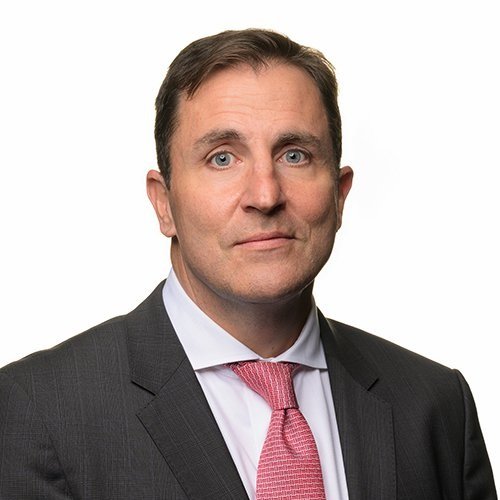Who Pays the Tariff?
Last week the NY Fed published the results of a survey of regional manufacturers and service providers titled, “Are Businesses Absorbing the Tariffs or Passing Them On to Their Customers?,” Federal Reserve Bank of New York Liberty Street Economics, June 4, 2025.
“Results indicate most businesses passed on at least some of the higher tariffs to their customers, with nearly a third of manufacturers and about 45 percent of service firms fully passing along all tariff-induced cost increases by raising their prices.”
One of the key questions market participants want and need to better understand is the impact tariffs will have on inflation. On Wednesday, we will get at least a partial read into those impacts with the release of the May CPI data. The consensus of Wall Street economists estimates that we will see the beginning of tariff impacts in the May report and expect to see inflation rising sequentially through the summer months. This survey from the NY Fed suggests the consensus will be right. Below are some additional commentaries from the economists who conducted the study:
“Consistent with textbook economics, tariffs generally resulted in higher prices to customers. Indeed, roughly half of businesses reported raising prices of goods directly subject to tariffs. Interestingly, a significant share of businesses also reported raising the selling prices of their goods and services unaffected by tariffs…something similar happened in 2018-19 as firms increased their prices on dryers when tariffs rose on washing machines from China, even though dryers were not subject to tariffs.”
While their surveys did suggest that some of these companies were working to source goods domestically, the impact of tariffs on employment has, so far, been a negative one:
“There were some signs that the sharp and rapid increase in tariffs affected employment levels and capital investments. Adjustments to headcounts were fairly modest but slightly tilted toward a small reduction among both manufacturers and service firms.”
While these results may be intuitively close to what one might assume, they do make clear that tariffs are a consumption tax to be borne by the consumer. The point we have been making is that consumption taxes are regressive, placing the largest burden on working Americans who consume all of their income, as opposed to wealthier Americans who have the ability to save and invest some of that income. Our view is that the likely result of these taxes will be a sharper than currently priced in, hit to consumer confidence, business confidence and economic growth.
Tim Pierotti is WealthVest’s Chief Investment Officer.
Tim has over 25 years of experience in various aspects of the equities business. Prior to joining WealthVest, Mr. Pierotti spent seven years in Equity Research management roles at Deutsche Bank and most recently at BMO where he was a Managing Director and Head of US Product Management. Tim has 11 years of investment experience most notably as Head of Consumer Research and Portfolio Manager at The Galleon Group, a former NY based $8Bln Long/Short hedge fund. Tim is a graduate of Boston College and lives in Summit NJ.
WealthVest makes no representation or warranty, expressed or implied, with respect to the accuracy, reasonableness, or completeness of any of the statements made in this material, including, but not limited to, statements obtained from third parties. Opinions, estimates and projections constitute the current judgment of Tim as of the date indicated. They do not necessarily reflect the views and opinions of WealthVest and are subject to change at any time without notice. WealthVest does not have any responsibility to update this material to account for such changes. There can be no assurance that any trends discussed during this material will continue.
Statements made in this material are not intended to provide, and should not be relied upon for, accounting, legal or tax advice and do not constitute an investment recommendation or investment advice. Investors should make an independent investigation of the information discussed in this material, including consulting their tax, legal, accounting or other advisors about such information. WealthVest does not act for you and is not responsible for providing you with the protections afforded to its clients. This material does not constitute an offer to sell, or the solicitation of an offer to buy, any security, product or service, including interest in any investment product or fund or account managed or advised by WealthVest.
Certain statements made in this material may be “forward-looking” in nature. Due to various risks and uncertainties, actual events or results may differ materially from those reflected or contemplated in such forward-looking information. As such, undue reliance should not be placed on such statements. Forward-looking statements may be identified by the use of terminology including, but not limited to, “may”, “will”, “should”, “expect”, “anticipate”, “target”, “project”, “estimate”, “intend”, “continue” or “believe” or the negatives thereof or other variations thereon or comparable terminology.
The S&P 500® is a trademark of Standard & Poor’s Financial Services, LLC and its affiliates and for certain fixed index annuity contracts is licensed for use by the insurance company producer, and the related products are not sponsored, endorsed, sold or promoted by S&P Dow Jones Indices LLC or their affiliates, none of which make any representation regarding the advisability of purchasing such a product. WealthVest is not affiliated with, nor does it have a direct business relationship with Standard & Poors Financial Services, LLC.


